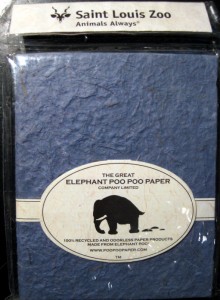It’s time to get serious about living sustainably.
I couldn't agree more with Bill McKibben. it's time to get angry.
So far we’ve raised the temperature of the earth about one degree Celsius, and two decades ago it was hard to believe this would be enough to cause huge damage. But it was. We’ve clearly come out of the Holocene and into something else. Forty percent of the summer sea ice in the Arctic is gone; the ocean is 30 percent more acidic. There’s nothing theoretical about any of this any more. Since warm air holds more water vapor than cold, the atmosphere is about 4 percent wetter than it used to be, which has loaded the dice for drought and flood. In my home country, 2011 smashed the record for multibillion-dollar weather disasters—and we were hit nowhere near as badly as some. Thailand’s record flooding late in the year did damage equivalent to 18 percent of the country’s gross domestic product (GDP). That’s almost unbelievable. But it’s not just scientists who have been warning us. Insurance companies—the people in our economy who we ask to analyze risk—have been bellowing in their quiet, actuarial way for years. Here’s Munich Re, the world’s largest insurer, in their 2010 annual report: “The reinsurer has built up the world’s most comprehensive natural catastrophe database, which shows a marked increase in the number of weather-related events. For instance, globally, loss-related floods have more than tripled since 1980, and windstorm natural catastrophes more than doubled, with particularly heavy losses from Atlantic hurricanes. This rise cannot be explained without global warming.”I'm getting really tired of hearing people talk the talk, without walking the walk. All of us do it, me included (what else can you say when I take a long airplane trip to vacation in San Francisco, despite the fact that I often ride a bicycle to work?). In the meantime, we are living in the only industrialized country that is still debating whether burning fossil fuels is heating up the planet. I'm tired of people driving to Earth Day in big SUVs. I'm tired of the fact that most of us who whine about sustainability (including me) live comparable lifestyles to those who downplay the importance of such issues. And how is THIS for a sobering talk? The speaker is Dr. Peter Raven who, in a gentle voice, is reading the riot act to the audience (his speech "Saving Ourselves" runs from 5:55 to 29:00). Raven is a courageous speaker who is not afraid to tie the exhaustion of natural resources to the exploding number of human beings on planet Earth. His facts and figures are not in dispute by any thinking person. [At the 29:00 mark, Raven describes an attempt to reclaim a precious preserve of extremely bio-diverse land in Costa Rica--this video was created at a fundraiser for that effort, titled the "Children's Eternal Rainforest."] As Bill McKibben says, it's time to severely devalue mere talk and to start making things really happen. The path is going to require some conscious change at the highest levels, because we cannot depend on ourselves to keep making the right decisions--we don't have that kind of willpower. We don't yet know exactly where we are headed, but we do know that we need to steer sharply away from fossil fuels. We also have some reason to believe that this future devoid of fossil fuels could be an opportunity as much as it is a crisis--see this talk by Amory Lovins, who argues that it is time to "Reinvent Fire."

